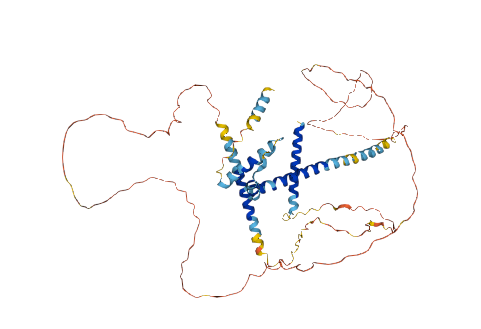Cat. No | MBA-047 |
Name | Rabbit anti-SP-1 Chromogranin A (Bovine) Antibody |
中文名字 | 兔抗SP-1嗜铬粒蛋白A(牛)抗体 |
Description | The antibody has a proven strong staining at a 1/1000 – 1/2000 dilution in rat adrenal medulla using Biotin-Streptavidin/HRP detection method. |
Clonality | Polyclonal |
Isotype | IgG |
Host | Rabbit |
Quantity/Volume | 50ul/100 µL |
State | Liquid Whole Serum/antibody |
Reacts With | Bird (Agapornis Roseicollis), Bubalus Bubalis (Water Buffalo), Calves, Cat, Cattle, Chicken, Dog, Duck, Ewe, Fish, Guinea Pig, Hamster, Horse, Human, Monkey, Mouse, Ostrich, Pig, Rat, Sheep |
Preabsorption Control | / |
Alternate Names | Pituitary secretory protein I; CgA; chromogranin A (parathyroid secretory protein 1), anti-SP-1 Chromogranin A |
RRID | AB_572227 |
Immunogen | This information is proprietary to Mabioway |
Gene Symbol | CHGA |
Entrez Gene ID | Entrez Gene: 102413232 Bubalus Bubalis (Water Buffalo) |
NCBI Gene Aliases | / |
Sequence | P10645 |
APPLICATION | |
Quality Control | The antibody has significant staining at a 1/1,000–1/2,000 dilution in rat adrenal medulla using Biotin/Avidin-HRP detection method. |
Tissue | Rat adrenal medulla |
Perfusion Fixation | • Fixative - 4% paraformaldehyde in 0.1 M Phosphate buffer, pH 7.4; 500 mL over 20-30 min. |
Absorption Control | |
Sections | 10 µm cryostat |
Tissue Incubation | 18–24 hours at 2°–8°C |
Detection System | Use Bn-AV/HRP according to manufacturer’s directions. |
Suggested Dilution | 1/1,000–1/2,000 in PBS/0.3% Triton X-100 - Bn-AV/HRP immunohistochemistry |
NOTES | |
Special Instructions | It is recommended that the researcher perform a primary antibody dilution series using our dilution recommendations as a guideline. Note that a change in the fixation or buffering system from our protocol may change the configuration of the protein which could alter the reactivity with the tissue tested. |
Concentration | Not applicable. Antibody concentration is only relevant for purified antibodies. |
Storage | After reconstitution, use immediately or refrigerate at 2º–8ºC up to 2 days. For long-term storage, aliquot antibody and freeze at -15°C or lower. Avoid repeated freeze/thaw cycles |



